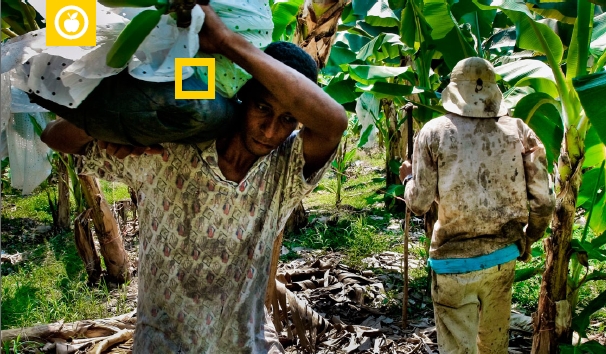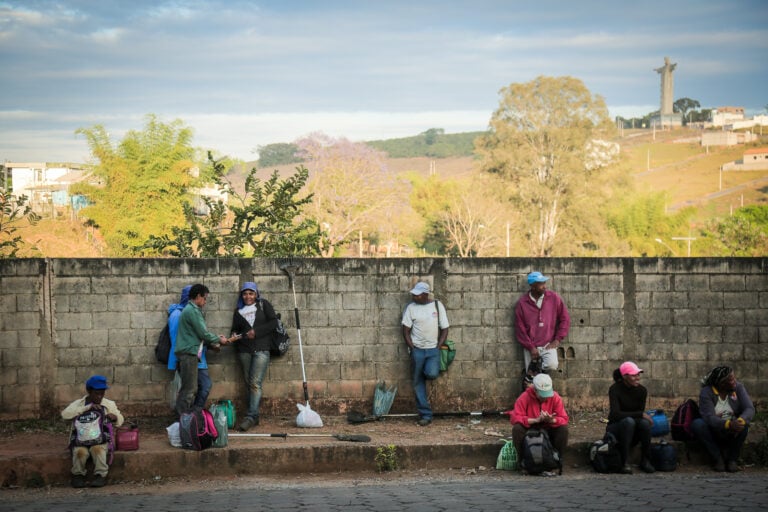
Fruit from Ahold leaves a bitter aftertaste
Starvation wages, extremely long working days without a permanent contract and no trade union to stand up for you. This is the bitter aftertaste left by many of the fruit and vegetables in Dutch supermarkets such as Albert Heijn (Ahold). That’s the conclusion of ‘Bitter Fruit’, a report published by SOMO today. Although the largest supermarket chain in the Netherlands says that it works to ensure responsible production, many – usually seasonal – workers in the fruit and vegetable sector in developing countries still struggle under poor working conditions. Better regulations and monitoring, as well as pressure on suppliers and governments in production countries, are therefore sorely needed.
SOMO investigated the working conditions in the production of fruit and vegetables for Dutch supermarkets: Mangos from Peru, beans, potatoes and grapes from Egypt, pineapples from Costa Rica, bananas from Ecuador, grapes from South Africa and tangerines from the Israeli settlements. According to SOMO researcher Sanne van der Wal, "Supermarkets are the most important buyers of fruit and vegetables from developing countries. But the growth in exports from these countries also involve high risks of poor working conditions. Much of the fruit and vegetables on sale in the supermarket are not produced responsibly.”
For example, an investigation into circumstances at the Peruvian company Camposol, which among other things produces mangos for Albert Heijn, revealed that working days of 11 hours or more, 6 or 7 days a week during the peak months, are common. Only with extreme amounts of overtime can workers earn just enough to live on the poverty line. Mango pickers or packers who do not accept this can usually forget about getting a job the next season. Anyone who wants to join a trade union is usually immediately fired. Wages are just as bad in the Egyptian fruit and vegetable sector, workers are at the mercy of gangmasters, there are no trade unions, and women – the largest group of workers – have no chance of promotion. The situation in the sectors referred to above in Ecuador, Costa Rica and South Africa is possibly even worse.
According to Sanne van der Wal, "Even though supermarkets such as Albert Heijn are increasingly implementing policy to combat abuses in these chains, this process is slow, and measures have little or no effect, because they are not strict enough. Large steps could be taken in this area if the supermarket sector were to work towards obtaining sustainable certification of the entire range of fruit and vegetables available from developing countries."
Noticias was commissioned by SOMO to produce a short film about working conditions on the mango plantations at Camposol in Peru. This includes interviews with workers and a local trade union leader.
Related news
-

-
Hungry for profits Published on:
 Vincent KiezebrinkPosted in category:Publication
Vincent KiezebrinkPosted in category:Publication Vincent Kiezebrink
Vincent Kiezebrink
-
 Modern slavery is still lurking in your coffee cupPosted in category:News
Modern slavery is still lurking in your coffee cupPosted in category:News Joseph Wilde-RamsingPublished on:
Joseph Wilde-RamsingPublished on:


